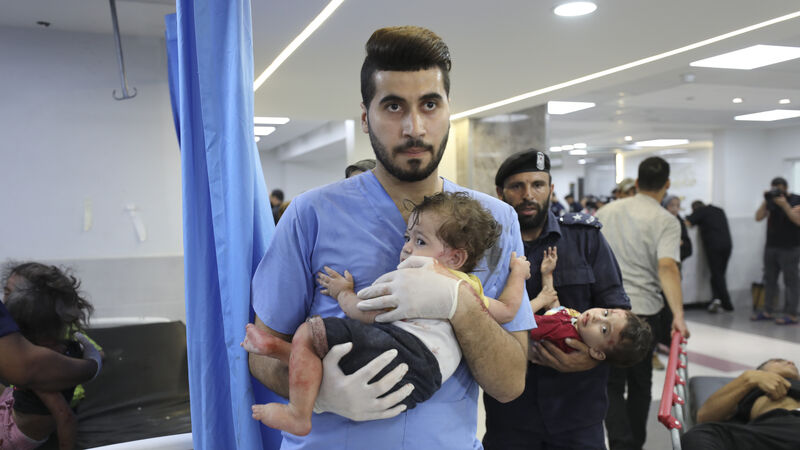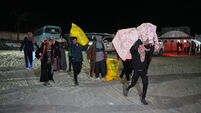Peter Power: Gazan children are running out of time, Irish people should help where they can

Palestinian children wounded in Israeli strikes are brought to Shifa Hospital in Gaza City. Picture: AP Photo/Ali Mahmoud
Just six short weeks ago, I was in the Gaza Strip and witnessed first-hand the dire circumstances in which families and children were living. Never could I have imagined the events which have transpired subsequently which have now led to a catastrophic humanitarian disaster unfolding in recent days.
Since October 7, the escalation of violence between Israel and Hamas has unleashed unimaginable horror on children in Gaza, where 15 years of conflict had already rendered 60% of the population food insecure.
















